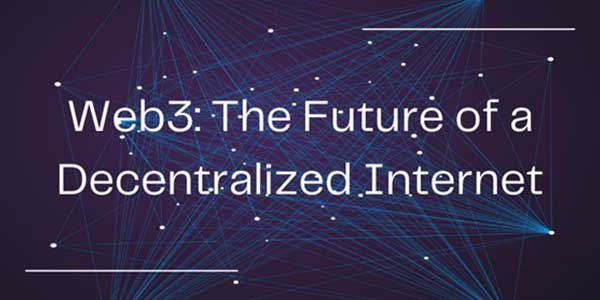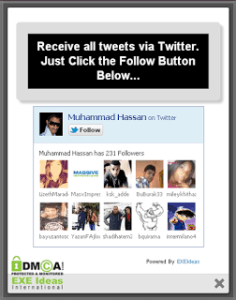
Ever wondered why your social media feed seems to know you better than you know yourself? Or why do ads for that coffee maker you were eyeing pop up across every website you visit? The answer lies in the invisible strings Big Tech pulls, using your data as the puppet.
These digital overlords have constructed an empire where you are both the consumer and the product. But what if there was a way to cut those strings? What if you could take back control of your digital life and actually be the one pulling the strings for a change?
Table of Contents
Cutting The Strings:
Enter Web3—the digital revolution that’s not just an upgrade, it’s a seismic shift in power dynamics. It’s a world where you are the sole proprietor of your data, and you get to call the shots. With its decentralized nature, Web3 doesn’t just promise to disrupt traditional power hierarchies; it’s already doing it.
It’s not a concept confined to tech labs and whitepapers; it’s a ground-up revolution that’s happening right now. This isn’t just about reclaiming your data; it’s about reclaiming your freedom in the digital landscape.
Web3’s Resilience:
Let’s take Bitcoin’s example. Most of us have been spectators to its rollercoaster journey. From meteoric rises to steep crashes, it’s been a playground for skeptics and believers alike. Critics have dismissed Bitcoin as a ‘nerd’s playground’ or a ‘scammer’s paradise,’ questioning its legitimacy as a transformative technology. Each crash would embolden the naysayers to write off Bitcoin as a fringe fad. But here’s the kicker—it always bounced back.
Today, Bitcoin is more mainstream than ever, endorsed by celebrities and even making its way into Super Bowl commercials. From being a speculative bubble, Bitcoin has matured into a robust market player. But let’s not forget that Bitcoin was the world’s introduction to blockchain, the cornerstone of Web3.
Beyond Crypto:
If Bitcoin is the poster child of blockchain, then blockchain is the Renaissance artist—mastering not just one but multiple forms. Beyond cryptocurrencies, blockchain is powering a new wave of innovations, from Non-Fungible Tokens (NFTs) to Decentralized Autonomous Organizations (DAOs).
NFTs, the ‘digital deeds’ of the Web3 world, have skyrocketed in popularity, creating a jaw-dropping $41 billion market. It’s not just about buying a piece of digital art; it’s about owning a piece of history.
Meanwhile, DAOs are redefining corporate governance. Imagine a company without a CEO or board of directors, where every decision is crowd-sourced and executed by smart contracts. Sounds like a plot from a sci-fi novel, but it’s happening, and it’s called Web3.
Web3 Transforming Lives Today:
The future may be unpredictable, but Web3 is already shaping it. From revolutionizing data privacy to redefining governance through DAOs, let’s dive into the tangible ways Web3 is transforming lives right now.
The Rise Of Decentralized Social Media:
Enough about theories and potentials; Web3 is already making waves. Take decentralized social media platforms like Mastodon. Here, you’re not the product; you’re the owner. Your data isn’t sold to advertisers; it’s encrypted and belongs to you.
From Virtual Goods To Real-World Assets:
Ever heard of NFTs? They’re proof that Web3 is changing the way we think about ownership, from art and music to real estate. And yes, they’re as legit as owning a physical painting, if not more secure.
The Green Revolution In Finance:
Regenerative Finance, or ReFi, is another innovation stemming from Web3 technologies, combining financial services with environmental sustainability. Now you can invest and save the planet simultaneously.
The Pillar Of Trust:
Web3 thrives on open-source development, a practice that is like building a house with glass walls. Everyone sees what’s going on, making the process transparent and trustworthy. You don’t have to take someone’s word for it; you can look at the code. This level of transparency fosters trust and community engagement like never before.
Power To The People:
The essence of Web3 is its decentralized nature. Imagine a world without corporate overlords dictating your online activities or harvesting your data. In Web3, you’re the captain of your ship. Decentralization disperses power, ensuring no single entity can hijack the platform or your data.
The Equalizer:
In a Web3 world, you don’t need a golden ticket or an exclusive invite to join the party. It’s permissionless. Whether you’re a user, a developer, or a service provider, you’re on equal footing with everyone else. No red tape, no gatekeepers—just unhindered participation.
The Internet Of Everything:
Web3 isn’t just confined to your laptop or smartphone. With advancements in the Internet of Things (IoT), you can access the web from various smart devices. Your car, your fridge, even your toaster—everything becomes a portal to the digital world.

It’s Not All Roses and Rainbows:
Web3 promises a utopia of decentralization and data control, but it’s not without its hurdles. From potential pitfalls like energy consumption to the ethical dilemmas posed by decentralized networks, here are the less glamorous aspects of the Web3 universe.
The Double-Edged Sword Of Immutability:
Blockchain technology is celebrated for its immutability, ensuring that once data is on the chain, it’s secure from tampering. But here’s the rub: immutability clashes with privacy laws like the GDPR, which advocate the right to be forgotten. In a blockchain, you can’t simply erase data. So while you gain in data integrity, you lose in data flexibility.
The Transparency Paradox:
Blockchain data is transparent; anyone can trace transactions back to their origin. While your personal information like your name or residence is masked, your public key is out in the open. In a world where data analytics is advancing rapidly, stitching together a person’s identity based on transaction history is not far-fetched. This transparency poses a significant risk to personal privacy.
The Internet Reimagined—Are You Onboard?
Web3 isn’t just a buzzword or a tech fad; it’s the future of the internet. It aims to democratize data, disintermediate power, and decentralize control. Web3 isn’t about creating new kinds of products or services; it’s about rewriting the fundamental rules of how products and services can be created, governed, and owned.
Much like the Marvel villain Thanos, the rise of Web3 seems inevitable. It promises to shatter existing monopolies, decentralize information, and redefine network economies. The question isn’t whether Web3 will redefine the internet; it’s how soon can you adapt to the tides of this inevitable change.

 About the Author:
About the Author:












Be the first to write a comment.